For my database I want natural ('A2'<'A12'), case-insensitive sorting, so for testing I created a new collation with
CREATE COLLATION tomscollation (provider = icu, locale = 'de-u-kn-true-ks-level2');

My end goal is to use such a collation as the default collation for the whole database so that every text column or index uses it by default.
This source notes that for PostgreSQL 15 non-deterministic collations are not yet supported at database level. This is where my confusion starts. Looking at my collation the database says its deterministic (see screenshot). However the documentation says that only byte-order collations can be deterministic but mine is clearly not byte-order.
So what am I missing here? Why am I able to create the following database and what are the side effects I might be unaware of?
CREATE DATABASE tomsdb TEMPLATE template0 LOCALE_PROVIDER icu ICU_LOCALE 'de-u-kn-true-ks-level2'